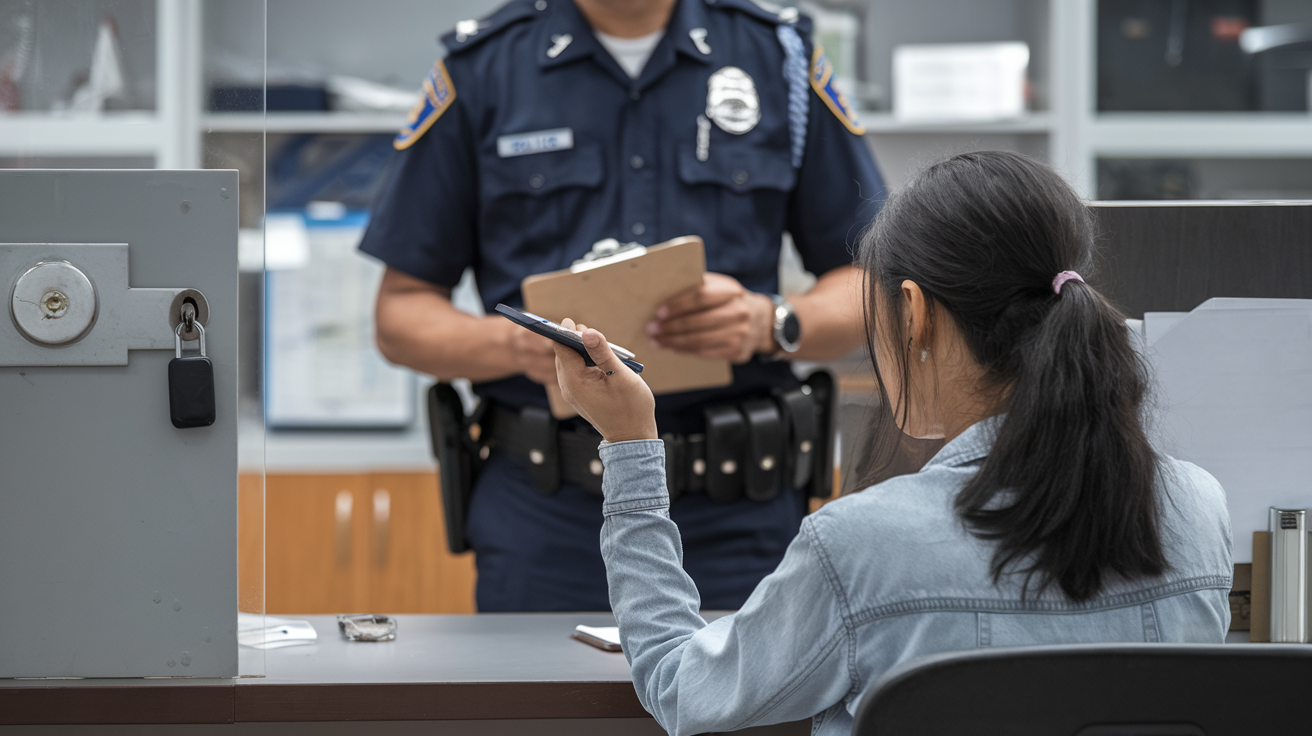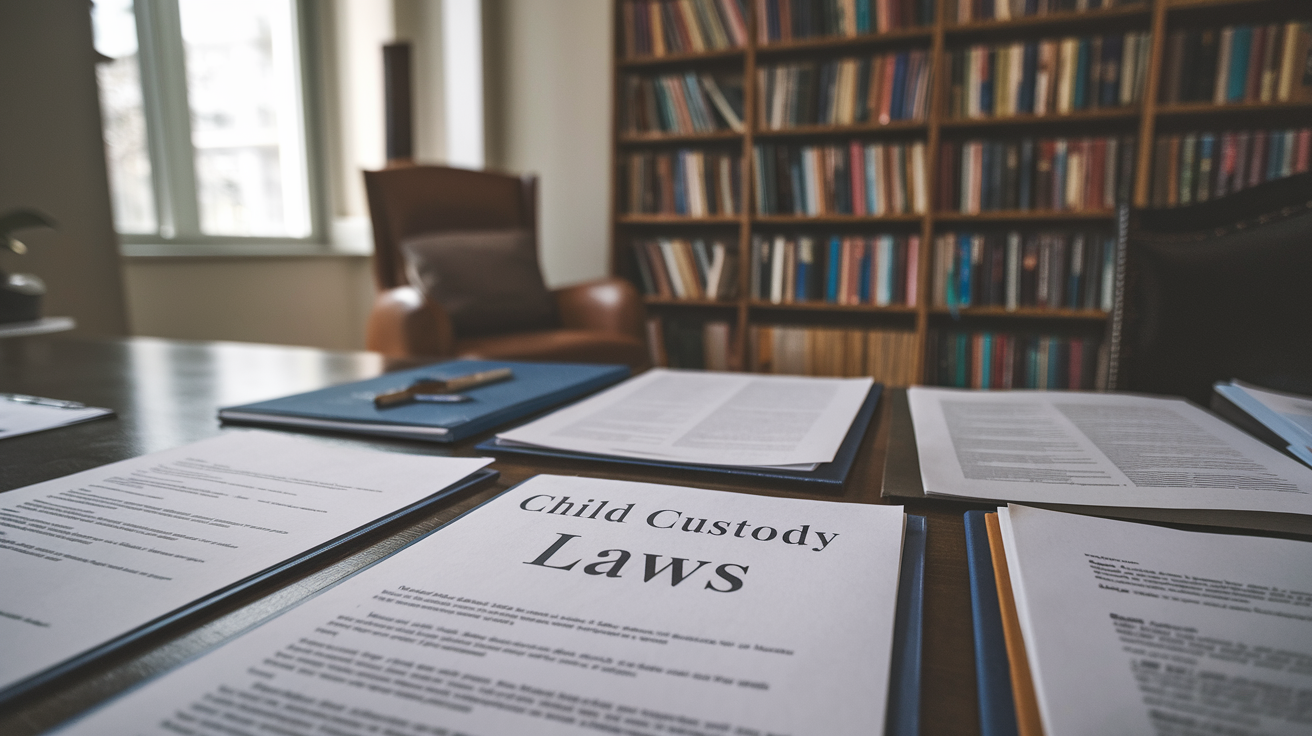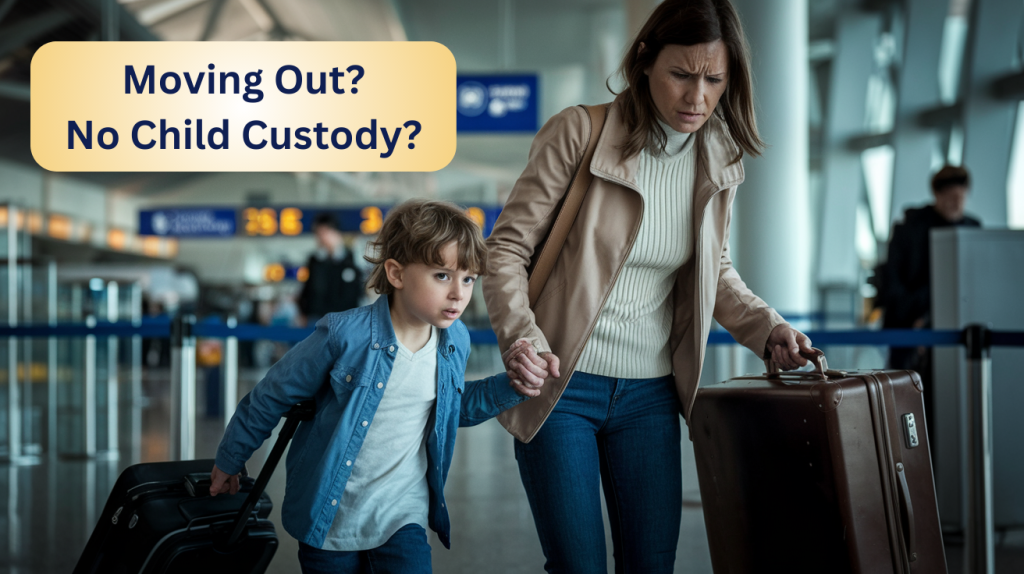State lines are more than marks on a map when children are involved.
However, moving to a new state might feel like a fresh start, but relocating with your child without proper custody agreements can lead to serious problems.
This guide walks you through what happens when you move out of state without proper custody orders. You’ll learn about potential legal troubles, the effects on your parental rights, and how courts handle these situations.
From criminal charges to custody changes, understanding these outcomes helps you make better choices for yourself and your child.
Let’s examine what you need to know before making any bold decisions.
An Overview of Child Custody Laws
Child custody laws determine who has the legal right to make decisions for a child and where the child will live. In most cases, the court’s primary concern is the child’s best interests.
Custody can be physical, where the child lives, and legal, which involves making decisions about education, healthcare, and more. Custody can be shared between parents (joint custody) or given to one parent (sole custody).
Courts consider factors like the child’s relationship with each parent, the parent’s ability to provide care, and the child’s preference if old enough.
Types of Child Custody Laws
| Custody Type | Physical Custody | Legal Custody | Joint Custody | Sole Custody |
|---|---|---|---|---|
| Details | Determines where the child lives | Control over major life decisions | Both parents share responsibilities | One parent has the main control |
| Sets daily care responsibilities | Education choices | Equal say in big decisions | Makes most decisions alone | |
| Can be shared between parents | Medical care decisions | Split time with the child | Primary home with one parent | |
| Includes daily decisions about the child | Religious upbringing | Both stay involved in daily life | Other parents may get visits |
Reasons for Leaving the State with Child & No Custody Order
Moving to another state with your child when there’s no custody order can lead to serious problems. Here are some of the issues explained:
First, the other parent can file a case to bring the child back. Courts often look poorly on parents who leave without telling the other parent. You might have to return to your old state and face legal troubles.
The court could see this as taking the child away from their other parent. This might hurt your chances of getting custody later. Even if you had good reasons to move, the judge may not agree with your choice.
You could also face money problems. The court might make you pay for:
- Travel costs to bring the child back
- The other parent’s lawyer fees
- Extra costs for the court case
In some cases, police might get involved. They could help the other parent find you and the child. This makes things harder for everyone, especially your child.
It is suggested that you talk to a lawyer before moving. They can tell you the right steps to take. It’s better to get proper permission first than deal with problems later.
What is an Emotional Impact on The Child

Kids feel many things when changes happen at home. Let’s look at what the child might feel:
- Your child may show sadness in different ways. They might cry more than usual. Some kids get quiet and want to be alone. Others might not want to do their favorite activities.
- Fear is another common feeling. Your child might worry about what will happen next. They may ask lots of questions. Some kids have trouble sleeping or want to stay close to you.
- Anger can show up, too. Your child might act out more than before. They could get upset over small things. Some kids might argue more with family members or friends.
How to Handle it Easily
- There’s good news, too. Kids can learn to handle these feelings well. Think of feelings like waves; they come and go. Your child needs you to listen and understand.
- Stick to regular daily activities like meals and bedtime as this makes kids feel safe. Give them space to talk about their feelings when they want to.
- You can also help by staying calm yourself. Children often copy how we handle our feelings. When you take good care of yourself, it helps your child, too.
List of Steps the Other Parents Can Take
When a parent moves to another state without getting proper custody arrangements, it can be very hard for the other parent.
There are clear steps you can take. Here’s what you need to do:
Step 1 – Document Everything

Record all contact with the other parent. Write down:
- The date they left the state
- Any messages or emails between you
- Phone calls and their content
- Your attempts to reach them
Step 2 – Contact Your Lawyer Right Away

Your lawyer needs to know about this situation immediately. They can:
- File the right papers with the court
- Help protect your rights as a parent
- Guide you through the legal steps
Step 3 – File an Emergency Court Order

Ask the court for quick action by:
- Requesting an emergency hearing
- Getting temporary custody orders
- Setting up clear rules for contact with your child
Step 4 – Work with Law Enforcement

The police can help by:
- Making a report about the situation
- Starting a paper trail
- Taking action if needed
Step 5 – Set Up a Support System

This is tough to handle alone. Make sure to:
- Tell trusted family members what’s going on
- Keep your child’s school informed
- Talk to a counselor who helps with family issues
Step 6 – Focus on Your Child

While Handling the Legal Parts:
- Keep your child’s routine normal
- Listen to their feelings
- Stay calm when talking about the other parent
- Help them feel safe and loved
How Do Courts Decide on Relocation Cases?
-
Child’s Best Interest: The court prioritizes the child’s emotional, educational, and social development when deciding on relocation, ensuring stability and consistency.
-
Reason for the Move: Courts consider the reason behind the relocation, evaluating whether it benefits the child or is motivated by a desire to limit the other parent’s access.
-
Impact on the Non-Relocating Parent: The effect on the non-relocating parent’s ability to maintain a relationship with the child, including visitation arrangements, is a key factor.
-
Parent-Child Relationship: The strength of the child’s relationship with both parents is critical. The court may be more cautious if the child has a strong bond with the non-relocating parent.
-
Feasibility of Visitation: Courts assess whether regular visitation can be maintained post-relocation, considering travel logistics and communication options.
Role of Moving Out of State with Child No Custody Agreement

The attorney meets with the child to understand their preferences about moving. They speak with teachers, doctors, and other important people in the child’s life. These conversations help build a complete view of the child’s needs.
During court proceedings, the child’s attorney presents facts about the proposed move. They explain how the change might affect the child’s education, healthcare, and relationships. The lawyer makes sure the court knows what the child wants.
The attorney checks if the moving parent has good reasons for relocating. They look at job opportunities, family support, and schools in the new location. This research helps them tell the court if moving serves the child’s needs.
The child’s attorney becomes even more vital when there’s no custody agreement. They push for clear rules about visits with both parents. The lawyer suggests ways to keep the child connected to both families.
The attorney also helps create plans for:
- School records transfer
- Medical care in the new location
- Regular contact with the non-moving parent
- Holiday and vacation schedules
Conclusion
Taking a child across state lines without proper custody orders can lead to serious problems. Parents might face legal charges, lose custody rights, or damage their chances of getting future custody.
The effects stretch beyond the legal system. Children may feel stressed from sudden moves and lost connections.
The courts focus on protecting children’s stability and well-being above all else.
For the best results, parents should consult a family law expert before moving and obtain all necessary court approvals. This helps protect the parent-child bond and legal standing.
Parents can also get in touch with their local family court or seek advice from legal aid groups to start this process correctly.
Frequently Asked Questions
Who Has Custody of a Child without a Court Order?
Married parents have equal child custody rights by default. For unmarried parents, mothers often get initial custody until paternity is proven. State laws vary, so getting a court-ordered agreement is recommended.
How Does Custody Work When One Parent Lives Out Of State?
Out-of-state parents may need modified custody plans. Courts look at the child’s interests and parent relationships and visit practicality to create workable arrangements that keep both parents involved.
What Should Be Done if the Non-Custodial Parent Moves Out of the State?
When a parent moves to a new state, custody plans must be reviewed. If the move affects the child, courts can change schedules. Both parents should talk openly and follow legal steps.








